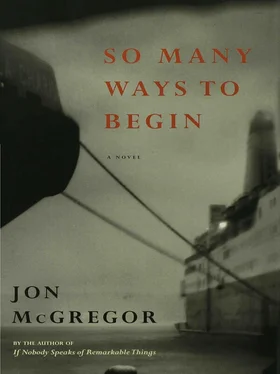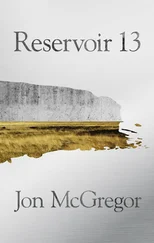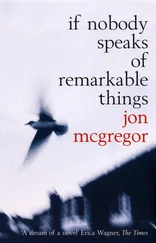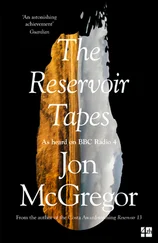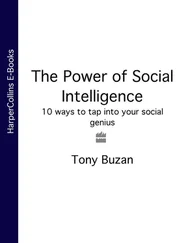The truth, David, is that I chose you. I chose to keep you. I think sometimes you forget that, or maybe you never understood it in the first place. I could have taken you back to the hospital and owned up. Or I could have let Julia be your mum instead. But as soon as I picked you up that first time, with Susan there next to me and the picture of Albert up on the mantelpiece, you were part of our family and I knew I couldn't not keep you. I was there from the very beginning, David. I might not have carried you in my womb, but I changed your nappies and I fed you, I was there when you learnt to walk, and to talk, and when you fell over and cut your knees. I don't have to try very hard to remember the weight of you on my hip, or the feeling of holding your hands above your head as you took your first steps, or the smell of your skin when I tucked you into bed at night. Your first word was Mum, David, and you said it to me.
But I can understand why you were angry when you found out. I can understand why you might still be angry now, after all this time. I think I would be, in your position. But I was never a bad mother, was I? We looked after you, and fed you, and clothed you, and tried to do our best for you, didn't we? Sometimes, and I'm sorry to say it, I don't think you've given us enough credit for that. I made one mistake, David, one wrong choice, and I don't want you to punish me for it for the rest of my life.
So that's what I wanted to say. If you're reading this you should be halfway to Mary's house by now. Be careful, will you? And say hello to Mary for me. Tell her I'd like to meet her one day, if that would be possible, if it seems like things are working out that way.
There's a programme starting that I wanted to watch, so I'll leave it there. I think I've probably said more than enough already anyway. But I hope you find what you're looking for over there, David, and I hope you'll be able to tell me something about it when you come home. Phone me if you get the chance, if you want to. And please be careful.
Love, Mum
They arrived in Letterkenny just after lunchtime, crawling the last couple of miles through traffic cones, surrounded by the heaped mud and painted stakes of new building works, bulldozers and diggers circling through the fields on either side of the road. Eleanor unfolded the emailed directions and waited for David to ask for them, but even here, as he drove through the crowded and narrow streets of the town centre, past the bus station and the shopping arcade and the school, he could recite the route by heart. They drove out of the centre along a main road, past an estate of new bungalows, and then suddenly they were there. They parked the car outside, and sat for a moment, looking. This is definitely it then? Eleanor said. He nodded, squeezing the back of his neck. You okay? she asked. He looked at her and smiled weakly.
I don't know what I'm going to say, he whispered. She put a hand on his knee.
You'll think of something, she said. Come on.
They got out of the car and stood at the front door. She looked at him. He wiped his face with the back of his hand and he knocked.
60 Biscuit tin, rusted, used as money box or for keepsakes, c.1944
When Mary's husband died, her eldest daughter persuaded her to move into town, into a small bungalow just around the corner from her, so that she'd be closer to other people if anything should happen. She hadn't liked it at first. She'd missed the open fire, the view across the fields, the smooth shine of the worn stone floor. She'd missed the smell of their clothes hanging together in the wardrobe. The weekly steaming ritual of the bath being filled. The photos and drawings pinned up across the walls, the tools hanging up on the back of the door, all the familiar bits and pieces of a home she had spent a lifetime making her own. The walls were thin in the new place, the doors hollow, and the electric heaters took so long to warm up and cool down that she had to watch the weather forecast just to know when to turn them on.
You're only lonely without Daddy, her children told her, when she said she wanted to go back, and she didn't think they were right but they were. You'll get used to it, they said, you'll like it there soon enough, and she found it hard to believe but she eventually did. She started to like sitting by the window, watching people walk in and out of town, waving back at anyone who smiled or waved. She started to like not having to worry so much about dust and draughts and smoke and ash. She liked being able to put her wet clothes into a machine and take them out as dry as if they'd been on the line for a week. And now that she had two rooms she didn't need, she liked having the children come to stay, bringing their own children with them, and boxes of toys, and new photographs for her to put up on the wall, filling her front room with stories of their new lives and jobs in the places they'd settled now, retelling old stories of the life they remembered growing up with.
And one day, barely stopping to think what she was doing, she told her eldest daughter what had happened all those years ago, when she worked in the big house in London, and got into trouble, and had to come home with her hands empty and her heart broken. You can understand why I didn't tell you before, can't you? she said, when her daughter had finished asking questions, and Sarah nodded, and shook her head, and said well of course, I suppose I do.
She'd thought that would be the end of it, a sad story to add to the collection, but Sarah began to ask more questions, and write things down, and to ignore her when she said that was enough she didn't want to talk about it any more it was done it was finished. And one day Sarah came round saying something about the internet, explaining things which were hard to take in for a soul who'd grown up with no telephone and no electricity and a postman who only came once a week if at all. I've found him, Sarah kept saying, and it took her some minutes to understand what her daughter meant.
I've found him. He's coming over to see you.
She wondered if it really could be as simple as that. She wondered if she was ready, having imagined it and prepared for it all those years, to finally open the door and say hello to him after all. She asked Sarah if she was sure, if there wasn't some mix up with the dates, if it wasn't odd that he was asking for her by her name and not by the name she'd given all those years ago, but Sarah said no it had to be right, it had to be him, he must have discovered the real name somehow and it was surprising what computers could do these days.
Aren't you excited? she kept asking. Aren't you pleased?
61 Paper package of selected photographs (reprints), c. 1950–2000
Well. Now. This is something, isn't it so. She stood in the doorway, looking up at him, her hands clasped together, a short white-haired woman with taut reddened skin and soft blue eyes, smiling faintly and saying well, well, right then.
Mrs Carr? he asked.
Ah, call me Mary, she retorted, laughing briefly and shaking her head. So, she said again. You'll be David. He nodded, and when he tried to say yes, that's me, I'm David Carter, his mouth went numb and only the first cracked half of his name came out. He nodded again.
She nodded back, as if agreeing with him, and unclasped her hands. Well, now, she said. He had no idea what to say. He just looked at her. Her mouth was small, the corners pulled tightly back into her cheeks. Her nose was very slightly turned to one side. She had a dark brown mole on the side of her face, just lower than her ear, with two thick hairs springing out of it. Her eyebrows were thick, and neatly arched, blackened with a little make up.
Читать дальше
Конец ознакомительного отрывка
Купить книгу
